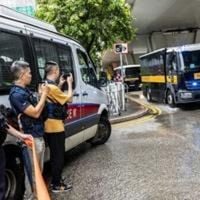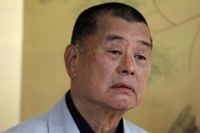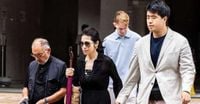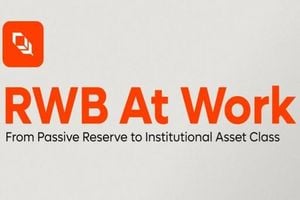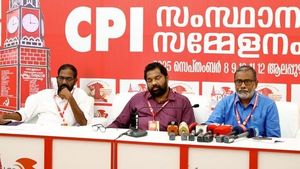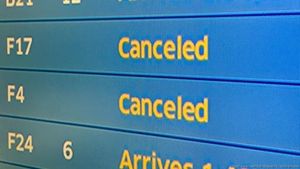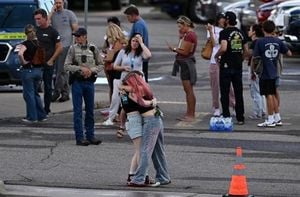On August 18, 2025, the final arguments in the landmark national security trial of Jimmy Lai, the 77-year-old founder of Hong Kong’s defunct pro-democracy newspaper Apple Daily, unfolded before a packed courtroom and a city watching closely. The proceedings, which have stretched nearly 150 days—almost double their original estimate—signify not just the fate of a single media mogul, but a pivotal test for press freedom and judicial independence in Hong Kong.
Lai, visibly thinner and dressed in a white jacket with black-rimmed glasses, nodded and smiled at supporters and family as he entered the West Kowloon Magistrates' Courts. Those in attendance, some waiting in the rain for a coveted seat, were keenly aware of the gravity of the moment. As reported by NPR, supporters described Lai as "an iconic figure in Hong Kong, a symbol, and a thorn in the side of those who oppose freedom, democracy, justice, and conscience."
Arrested in August 2020 under Beijing’s sweeping national security law, Lai faces charges of colluding with foreign forces to endanger national security and conspiring to issue seditious publications. If convicted, he could face life in prison. The law, imposed after the 2019 anti-government protests, criminalizes acts of secession, subversion, terrorism, and collusion with foreign entities. Chinese and Hong Kong authorities have maintained that the legislation was necessary to restore order, but critics argue it has been wielded to stifle dissent and erode the city's promised civil liberties.
Prosecutor Anthony Chau, in his closing arguments, painted Lai as a figure whose international connections were "long term and persistent," highlighting meetings with U.S. political leaders, including then-Vice President Mike Pence and Secretary of State Mike Pompeo in 2019. According to the Associated Press, Chau argued that Lai’s efforts extended beyond routine international exchanges, suggesting an "unwavering intent" to solicit foreign actions against Hong Kong and Beijing. Chau stated, "These collaborations are long term and persistent." He further contended that requests for sanctions should include officials, not just states, and questioned Lai’s attempt to shield his actions under the banner of freedom of thought and association.
Yet, Lai’s own testimony—delivered in November 2024—told a different story. He denied ever asking U.S. officials to take action against Hong Kong or China, insisting that his meetings were about seeking moral support for the city’s democratic aspirations. “This is beyond me,” Lai testified, according to BBC. When questioned about an Apple Daily report suggesting he had asked for U.S. sanctions, Lai admitted he must have discussed it with Pompeo, adding he had no reason to doubt his own newspaper’s reporting. However, he emphasized that he would not have encouraged foreign sanctions after the national security law took effect in June 2020.
Lai’s health has become a subplot in the lengthy trial. Proceedings were delayed twice—first by weather, then by concerns over his heart. His lawyer, Robert Pang, informed the court that Lai had suffered heart palpitations while in custody. The judges ordered a heart monitor and medication, and by the time arguments resumed, Chau reported that Lai had no further health complaints. The Hong Kong government, responding to foreign media reports about Lai’s treatment, stated that a medical examination had found no abnormalities and insisted that his care in custody was adequate.
The trial has not only captivated Hong Kong but has drawn significant international attention. Foreign governments and human rights groups have expressed concern over Lai’s prolonged detention in solitary confinement. During his 2024 presidential campaign, Donald Trump declared, “100%, I’ll get him out. He’ll be easy to get out.” However, in a more recent Fox News radio interview, Trump clarified, “I didn’t say 100% I’d save him. I said, 100%, I’m going to be bringing it up, and I’ve already brought it up, and I’m going to do everything I can to save him,” while noting that Chinese President Xi Jinping “would not be exactly thrilled” by such efforts.
China’s response has been unequivocal. Liu Pengyu, spokesperson for China’s embassy in Washington, called Lai “a key orchestrator and participant in anti-China, destabilising activities in Hong Kong,” and condemned what he described as "external forces" interfering in China’s internal affairs. The official Chinese position is that the national security law is essential for the city’s stability and that foreign governments have no right to intervene.
Lai’s journey from textile magnate to outspoken media tycoon has long made him a target for authorities. Through Apple Daily, which was forced to shut down in 2021, he became one of the most prominent critics of Beijing’s tightening grip on Hong Kong. In court, Lai reflected on his motivations for founding the newspaper: “The more information you have, the more you know, the more you’re free.”
The closing arguments mark the final chapter of Lai’s court appearances before a verdict is delivered by three national security judges, all hand-picked by the authorities. The timing of the verdict remains uncertain—it could arrive in weeks or months—but the outcome is sure to reverberate far beyond the courtroom’s walls.
Outside, the mood among Lai’s supporters was a mix of anxiety and defiance. Former Apple Daily reader Susan Li told the Press Association, “I worried about Mr Lai’s health as he looked visibly thinner and I would continue to pray for him. I wanted to let him know we are still here.” Another supporter, identified only as Chan, explained to NPR, “Our support for him isn’t just about supporting him as an individual, it’s also about standing up for these values.”
When Hong Kong was handed back to China in 1997 after more than 150 years of British rule, Beijing pledged to preserve the city’s civil liberties for 50 years under the “one country, two systems” framework. However, many critics now argue that those promises have been eroded, especially since the introduction of the national security law. Authorities, meanwhile, maintain that the law has restored order and remains necessary for Hong Kong’s continued prosperity.
The trial’s drawn-out timeline, the international spotlight, and the sharp divide between official narratives and those of Lai’s supporters have made this case a touchstone for the city’s future. As the world awaits a verdict, the fate of Jimmy Lai stands as a symbol of the broader struggle over freedom, rule of law, and the soul of Hong Kong itself.
With closing arguments concluded, all eyes now turn to the three judges, whose decision will not only determine Lai’s fate but could shape the trajectory of civil liberties in Hong Kong for years to come.
